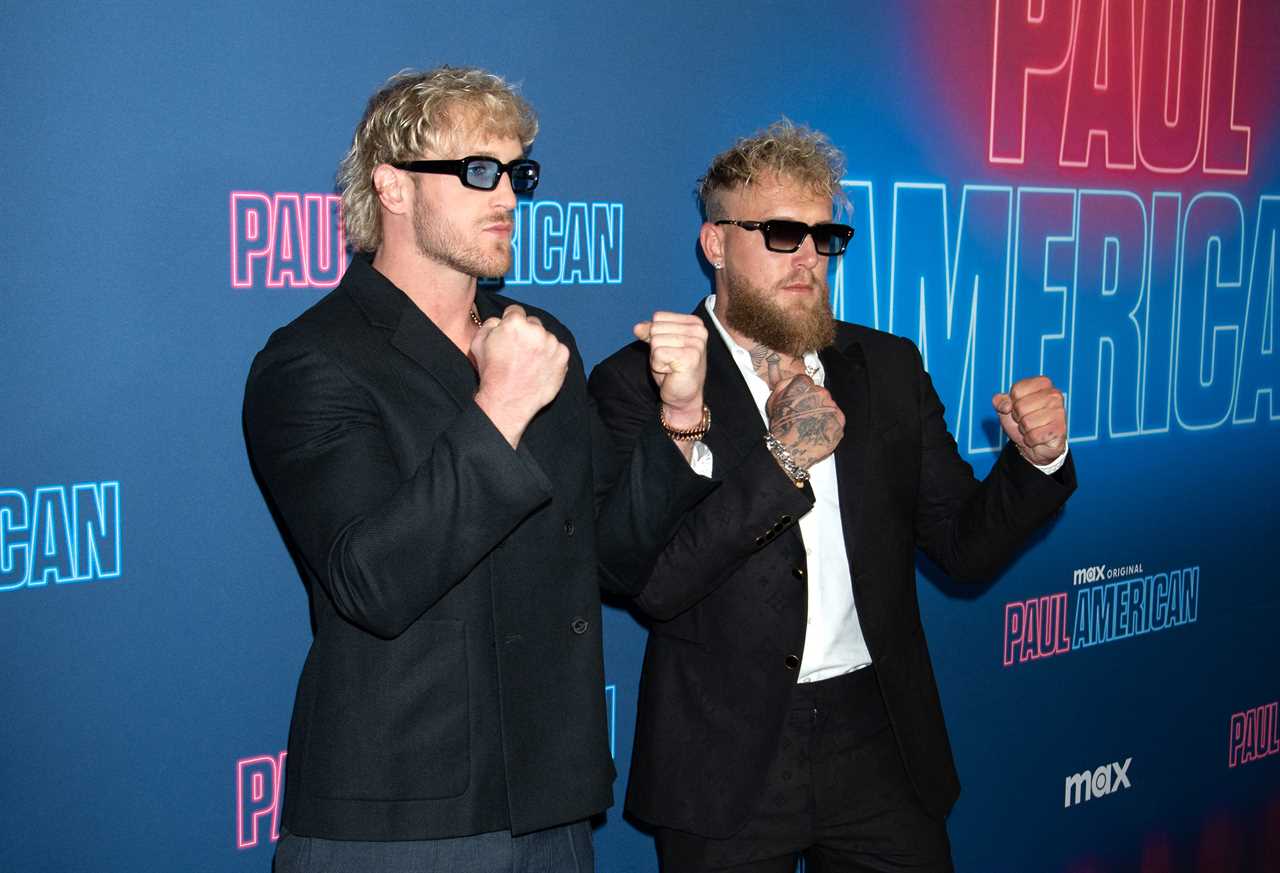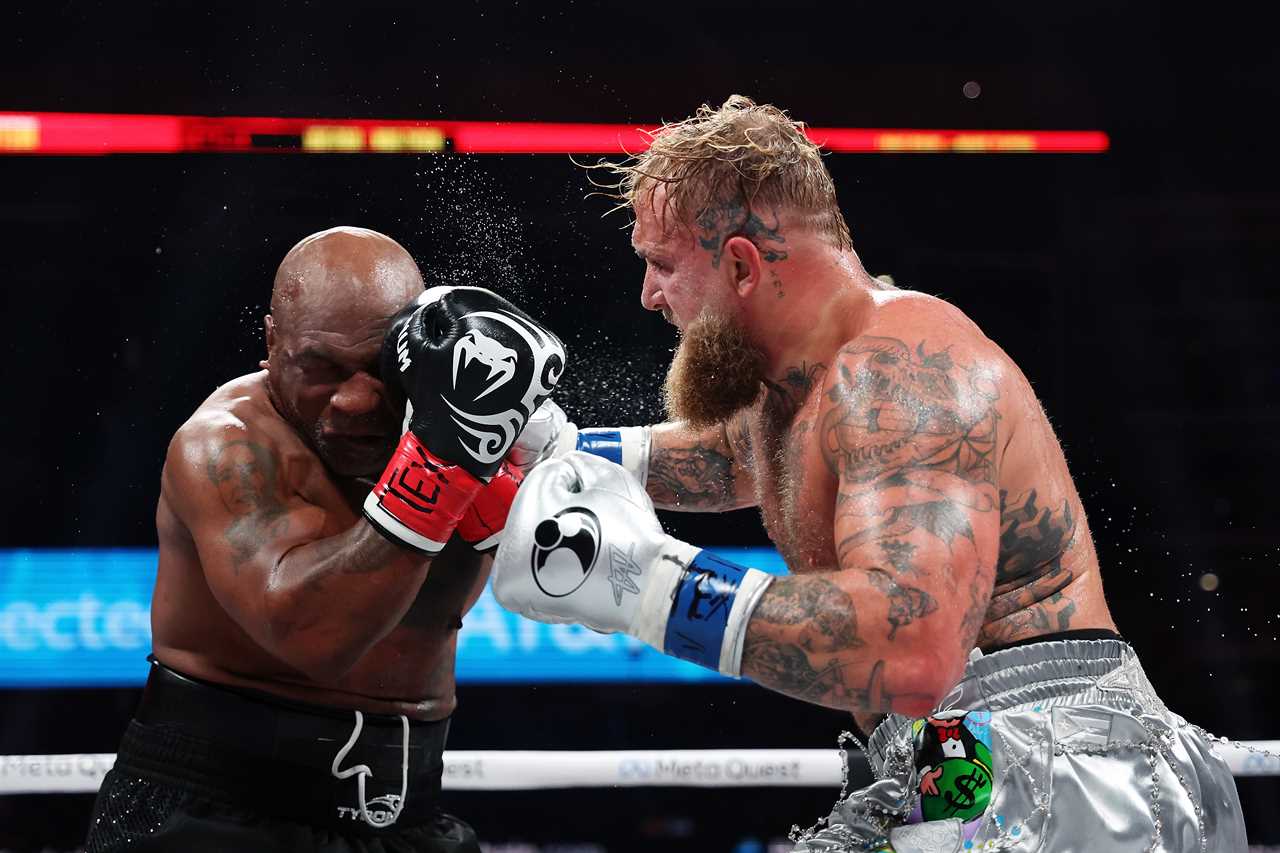
Sibling Tensions Surface Before High-Stakes Bout
In the lead-up to his highly anticipated fight against boxing legend Mike Tyson, Jake Paul found himself entangled in a fierce dispute with his brother Logan. The altercation, captured in detail within an eight-part reality series, has shed light on the underlying tensions between the two YouTubers-turned-boxers.
Controversial Matchup Sparks Public Debate
Originally scheduled for July, Jake Paul's fight with the 57-year-old Tyson stirred immediate controversy. Critics, including Jake's main rival KSI, questioned the fairness of the match, highlighting the significant age difference. KSI remarked, "Mike Tyson is 57 years old. Like, yes in his prime this would’ve been crazy. Now it’s just like, sad."
Family Fallout Revealed on New Reality Show
In the premiere episode of "Paul American," Jake Paul opened up about the strained relationship with Logan. "Logan is constantly undermining me any chance he can get," Jake confessed. He expressed frustration over Logan's perceived alliances and negative comments, stating, "He’s sitting there with my biggest enemy talking about the biggest accomplishment of my life. It’s just not what brothers should do."
Public Feud Escalates on Podcasts and Social Media
The disagreement intensified when Logan, co-hosting a podcast with Mike Majlak, faced backlash for his comments on the fight. Jake criticized Logan for his stance, while Logan defended his perspective, questioning the validity of their support systems. The heated exchange included personal attacks and revealed deep-seated grievances between the brothers.

Behind-the-Scenes Struggles Amid Show Negotiations
Despite their personal conflicts, Jake and Logan were simultaneously pitching their reality show to various TV networks. Their ability to maintain professionalism during interviews with top television executives, even amidst their private disagreements, showcased a complex dynamic within the Paul family.
Fight Postponed Due to Tyson’s Health Concerns
The planned bout took an unexpected turn when Mike Tyson had to withdraw from the fight for health reasons. This delay pushed the fight to November, allowing both brothers time to address their differences publicly and privately.
Jake Paul Triumphs in the Ring
When the fight finally took place, Jake Paul emerged victorious on points, captivating over 100 million viewers on Netflix. The win marked a significant milestone in Jake’s boxing career, demonstrating his ability to succeed despite the surrounding drama.
Reconciliation Marks a New Chapter for the Paul Brothers
Following the intense period of conflict and competition, Jake and Logan Paul managed to reconcile. “Logan and I have a history of going at each other’s throats,” Jake remarked. “We can go from hating each other to loving each other. And that’s what being a Paul is all about.” This reconciliation adds another layer to the already tumultuous relationship, highlighting the resilience and complexity of sibling bonds.
Impact on Their Public Personas
The public display of their feud and subsequent reconciliation has only amplified the Paul brothers' presence in the media. Their ability to navigate personal disputes while maintaining their professional endeavors underscores their influence and adaptability in the ever-changing landscape of entertainment and sports.
Looking Ahead: What’s Next for the Paul Siblings?
As Jake Paul continues to build his boxing legacy and Logan explores new ventures, the dynamics between the brothers will undoubtedly remain a point of interest for fans and critics alike. Their story serves as a testament to the challenges and triumphs that come with fame, family, and the pursuit of personal goals.
Frequently Asked Questions
How long is it usually required to become a professional fighter?
The time it takes to become a professional boxer can vary widely. The time it takes to become a professional boxer can vary widely. It all depends on an individual's skill level at the start, their ability to adapt to the sport and the quality training they receive. On average, it could take several years of dedicated training and successful amateur experience before one is ready to turn professional. Some people may develop more quickly while others will take more time.
What are some of the most important components in a boxer’s training regime?
The training regimen of a boxer is usually composed of several important components. They include technical skill building, tactical drills and strength and conditioning. Sparring and mental training are also included. The tactical drills will help you develop your fight strategy. Technique-focused training improves punch accuracy, defensive maneuvers, and defensive techniques. Sparring is a great way to gain practical experience. Conditioning exercises improve athleticism. Mental training is aimed at building resilience, confidence and focus.
How important are physical conditioning and training for professional boxers?
Physical fitness is essential for professional boxing. Sport requires high levels strength, speed endurance and agility. Professional boxers have to adhere to a specific fitness program which includes aerobic, anaerobic, strength, resistance, and flexibility exercises. Without superior physical conditioning, a boxer's ability to train effectively and perform in the ring is significantly compromised.
Can anyone learn to box?
Boxing is a sport that many people can enjoy, but not everyone has what it takes for them to compete on a professional stage. The combination of talent, physical ability, mental toughness and dedication is required for professional boxing. Prospective boxers should also be willing accept the inherent risk of the sport. A thorough assessment by a coach can determine if a person has the potential to make a career out of boxing.
What role do managers and promoters have in the professional career of a boxer?
Promoters and managers play a crucial role in the professional career of a boxer. Managers have the responsibility of managing a boxer’s career, negotiating contract and dealing with his business affairs. They can also assist in choosing the right fights for the boxer and take care of his or her interests. The promoters focus more on organizing events, marketing fights and attracting sponsors and audience attention. This increases a boxer’s public profile and earnings potential.
What qualities should a person look for in a trainer or coach of boxing?
A boxing coach should have experience in the sport, be able to work with other boxers successfully, have a compatible coaching style, as well as a solid understanding of its technical and strategic components. A good boxing trainer will also focus on safety, personal growth, and conditioning. Additionally, it is essential to have a coach who communicates effectively and motivates you to reach your full potential in boxing.
What kind diet should an amateur boxer follow to improve their performance?
A novice boxer should follow a nutritionally balanced diet that fuels intense workouts and fosters recovery. The general recommendation is to eat a combination of carbohydrates and proteins for energy. Lean protein helps repair and grow muscles, while healthy fats are good for your overall health. As well, vitamins, minerals and hydration are essential. Consulting a nutritionist who specializes in sports can help create a custom diet plan for boxers that matches their training and weight-class targets.
Statistics
- The average age for boxers to turn professional is between 18 to 25 years, though many continue to compete well into their 30s and beyond.
- Nutrition experts emphasize that over 70% of a boxer's diet should focus on carbohydrates and proteins for energy and recovery.
- On average, a professional boxer spars between 100 to 200 rounds in preparation for a major fight.
- Professional boxers typically train 4 to 6 hours per day, 5 to 6 days a week, depending on their fight schedule.
- Statistical data indicates that there has been a 15% increase in the number of professional boxing gyms over the last decade.
- Research shows that a boxer's reaction time is typically under 0.25 seconds, honed through repetitive drills and sparring.
- A study showed that most professional boxers have spent more than 4 years in training before their first professional bout.
External Links
How To
How to Select the Best Boxing Gyms for Professional Training
Choosing the right boxing gym is pivotal to a successful transition from amateur to professional. The ideal boxing gym should have experienced coaches familiar with the professional world of boxing. The gym should have a range of training equipment, including a sparring ring. Assess the gym's culture and environment; it should be motivating and focused on improvement. You should also consider the gym’s track record for producing professional athletes and if they provide personalized training plans tailored specifically to your goals and skill level.
 CricketBoxingFormula 1GolfHorse RacingPremier LeagueTennisPrivacy PolicyTerms And Conditions
CricketBoxingFormula 1GolfHorse RacingPremier LeagueTennisPrivacy PolicyTerms And Conditions
